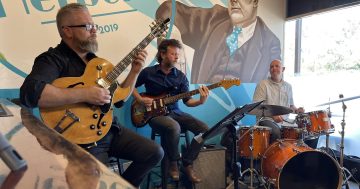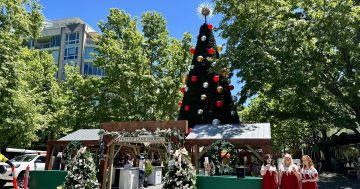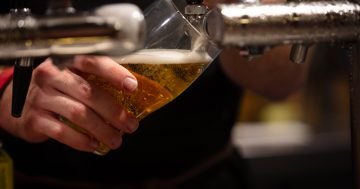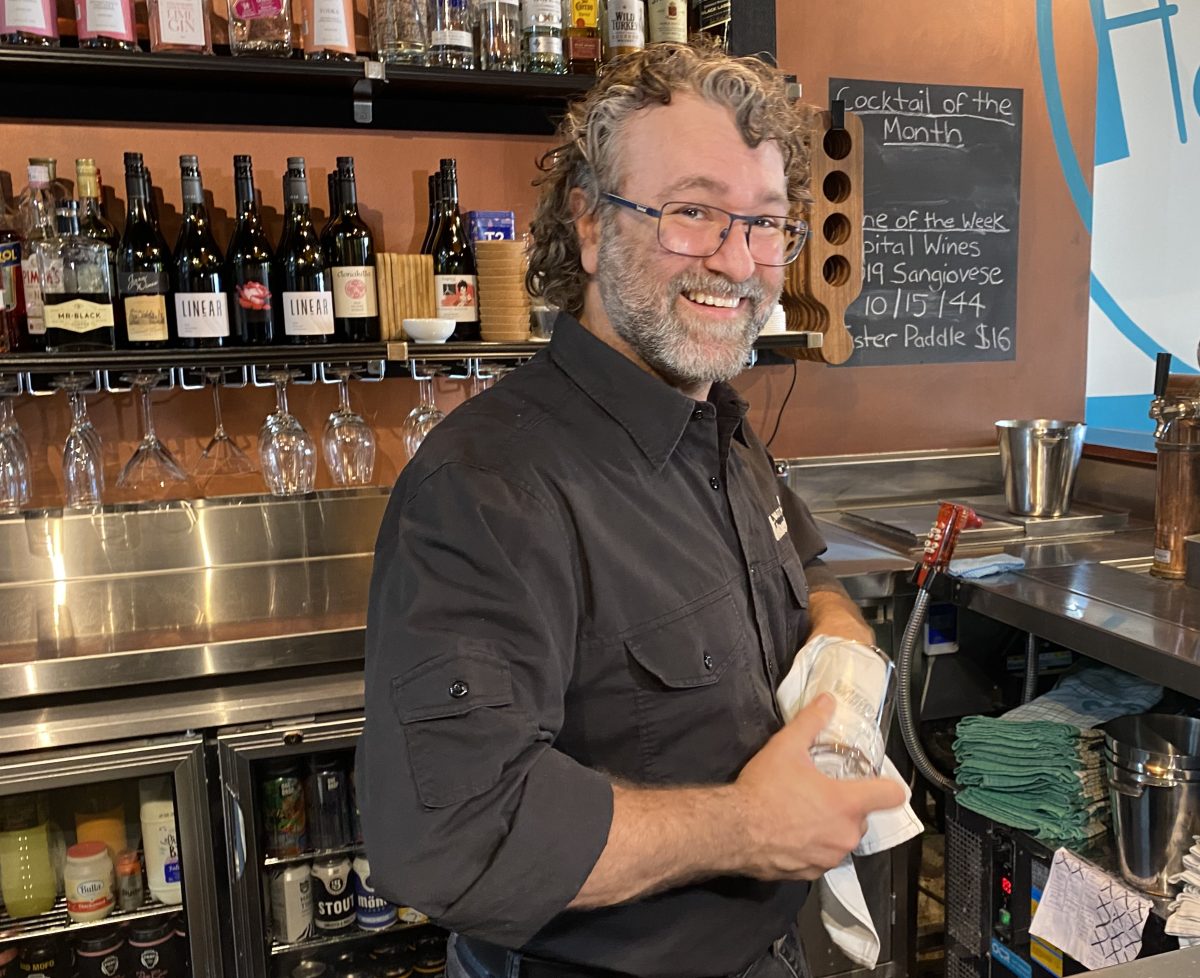
The ACT’s nightlife is being given a major boost as part of efforts to make Canberra a great place to go out, no matter where you are in the city.
A range of reforms aim to boost the night-time economy, and the first tranche is taking effect on 1 January 2024.
Business and Better Regulation Minister Tara Cheyne announced at Herbert’s in Evatt that for licensed venues with an occupancy under 80, they’ll both have their liquor license fees slashed by 50 per cent and be able to trade until 2 am.
“For example, Herbert’s at the moment pays $1,200 a year for their liquor license and can trade until midnight, so that [fee] will be reduced to $600 annually, and they’ll be able to trade until 2 am at no extra cost,” she said.
“If they wanted to trade until 2 am, at the moment, that would be costing them $2000.”
Establishments with an occupancy of 20 or fewer, such as bar/bottle shop hybrids, will have a liquor license fee reduction of 80 per cent.
Herbert’s co-owners Kristin and Dino Martiniello said all these changes would be a game-changer for their business and others like theirs in Canberra suburbs.
“We were looking at reducing local artists and musicians [at our venue], and we don’t have to do that next year, moving forward, with these new fee reductions,” Mrs Martiniello said.
Mr Martiniello was excited about what this could mean for the future of their business.
“It will help us potentially expand, as we’ve been trying to … [but] the licensing fee has been a barrier, so this will hopefully reduce the red tape and the barriers for us,” he said.
“This will actually allow us to hold functions later instead of closing the bar at midnight.”
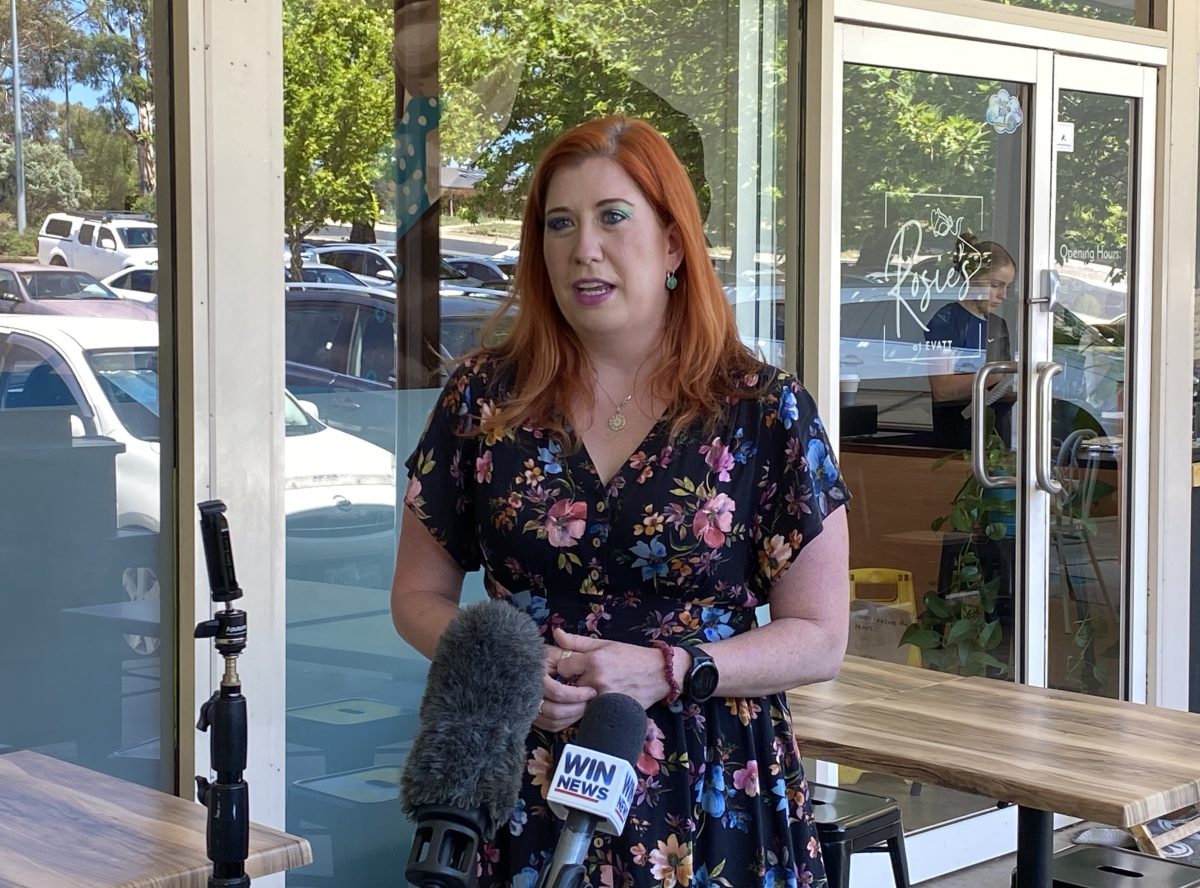
Business and Better Regulation Minister Tara Cheyne said she had considered these reforms for ‘several years’. Photo: Claire Fenwicke.
The night-time economy generates about $3.8 billion annually and employs 30,000 people in the ACT.
But Ms Cheyne wants what’s on offer in Canberra to expand, so further reforms are coming to encourage micro bars to set up shop in the Territory.
“Their annual liquor license fees will be reduced by 80 per cent, taking it to about $500 if a micro bar wanted to open until midnight,” she said.
General license holders will also see changes around how they can do business.
At the moment, their licenses mean they can sell liquor for both on and off-premises consumption but have to have two separate sale points. This requirement will be removed.
“So they’ll be able to potentially extend their floor space and also not have to encourage people to go through a different door or system to be able to purchase the alcohol that they want to take home with them,” Ms Cheyne said.
These changes are operating under a pilot model to enable continuous monitoring and adjustments, but this change is “indefinite”.
Another wave of reforms will be introduced to the Legislative Assembly next year.
These changes will be focused on supporting the arts and entertainment industry, an area of reform which Ms Cheyne said she had been thinking about for “several years”.
The first proposed change will be for any venue that consistently supports the arts throughout the year (with an occupancy of 150 or fewer) to have its liquor license fees reduced by 80 per cent, on top of the change coming into effect in January.
“Because [Herbert’s] has consistently supported live music and always have an art exhibition on … they will get an 80 per cent fee reduction on top of the 50 per cent that they’re getting [in January],” Ms Cheyne explained.
“So they will be paying, once this legislation goes through, just $120 a year in liquor license fees.”
It’s hoped this will encourage more small and medium-sized businesses to back local artists.
It’s not yet clear how businesses will be able to prove this support to the government, but that’s being worked on.
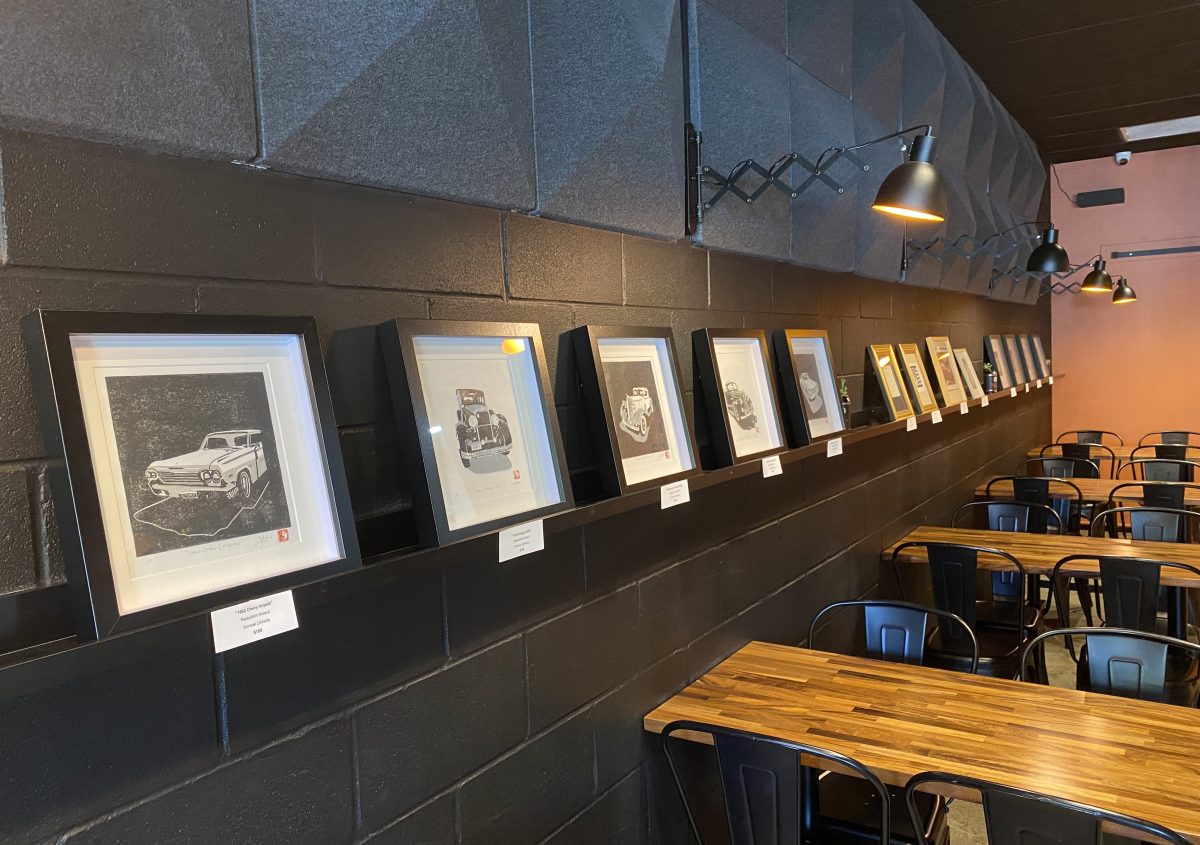
Herbert’s in Evatt regularly displays local artist’s work. Photo: Claire Fenwicke.
It will also be proposed that the objectives of the Liquor Act 2010 be amended to state that it exists to support the night-time industry, entertainment and the arts.
The legislation could also be amended to allow more flexibility for businesses that serve liquor in an “auxiliary” way, such as hairdressers.
“Already you can get a glass of wine or a beer that’s complementary when you’re at the hairdresser … we’ll be extending that to more businesses,” Ms Cheyne explained.
“For example, beauty salons and nail salons will be captured, and as more present to us, we’ll have flexibility for the regulator to make decisions about that.”
Finally, any sized venue will be given up to 10 trading authorisations to extend opening hours at no extra cost, and Access Canberra will be able to declare a “special event” where all eligible liquor license holders can automatically trade later for free.
“So something like the National Multicultural Festival is what I would expect would be declared a special event, and we’ll be working with Access Canberra about some certainty that we can provide about events that will always be declared special events,” Ms Cheyne said.
“But we want to be flexible as well, so for example, the Matilda’s semi-final, that would be a great reason for our bars and our venues to be able to stay open later.”
It’s hoped these reforms will be passed by July 2024.












